- Hey Dullblog Online Housekeeping Note - May 6, 2022
- Beatles in the 1970s: Melting and Crying - April 13, 2022
- The Beatles, “Let It Be,” and “Get Back”: “Trying to Deceive”? - October 22, 2021
NANCY CARR * I’ve been listening to “On Air: Live at the BBC Volume 2″ pretty continuously the past few days, and it’s great fun (unsurprisingly, for anyone who’s heard volume 1). Of particular note is the astounding clarity of the sound. The warmth and immediacy of the recordings is a large part of what makes the set such a pleasure to listen to. What a superb job of mastering and transferring.
“Volume 2” has more between-song talk than “Volume 1,” which provides a fascinating window into the Beatles’ world circa 1964. And as Stuart Berman puts it in his Pitchfork review, “the grab-bag sequencing and strategically stitched between-song banter lend the collection a frenetic, cut-and-paste momentum that’s remarkably attuned to modern listening habits.”
Beatles peaked in 1964?
I think Berman’s nuts to contend that “there’s a case to be made that The Beatles peaked as a band in 1964,” but this compilation is a welcome balance to the endless “Get Back” tapes showcasing the band’s infighting, that’s for sure. (I also think Berman’s “7.2” ranking for the album is rather arbitrary, but I acknowledge that it’s difficult to rank this sort of thing in purely musical terms, since so much of it is spoken word.) It’s delightful to hear all four Beatles having a good time playing live and bantering with the BBC interviewers, and for confirmed Beatles fans, it’s interesting to hear foreshadowings of things to come, both musically and in terms of the four members’ personalities. As they read the dedications to fans who’ve written in, for example, George tends towards dry amusement, John towards just-shy-of-sarcasm edge, and Paul simply sounds thrilled that so many people love them. Ringo is, reliably, Ringo.
These are a few of my favorite tracks
So far my favorite tracks include “I’ll Get You,” “Words of Love,” and “This Boy” — all powerful reminders of just how deep the Beatles’s bench was, vocally. John and Paul are the uncontested stars, but George and Ringo also pitch in strongly. Even relatively lightweight songs like “Anna” and “Devil in her Heart” are pure joy to listen to. “Chains” is beautiful as well, and “Boys” is hilarious. The studio outtake of “I Feel Fine” features several false starts, a potent reminder of just how much effort went into building songs that sound effortless. Hey Dullblog readers who’ve been listening to Volume 2, what are your favorites?


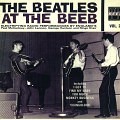
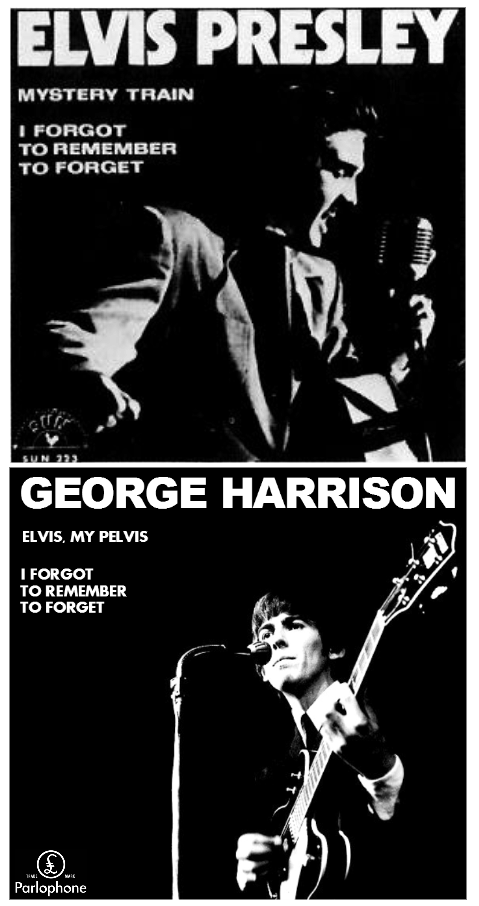
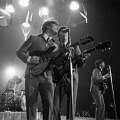
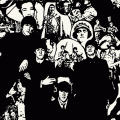
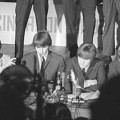
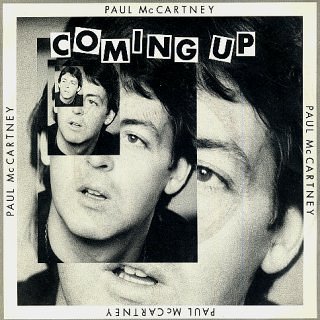


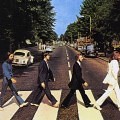
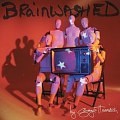

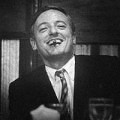
Nice review, Nancy. As stated, I think this will be a very Beatley Christmas for me!
Of course a case can be made that the Beatles peaked as a band in 1964, just as a case could be made that the Beatles peaked as a band in 1957, or February 12, 1969 at 4:30 pm. But what you really mean to say is, “I prefer the Beatles music from 1964.” There’s no need to inflate the preference into an argument, and it’s a little Comic Book Guy to do so. (This very blog is rife with this very sin under my very name, obviously.)
I must admit an uncharitable thought along these lines: when I saw Kurt Cobain quoted as a proponent of this view, it all made a certain sense—Cobain never developed, so his view of The Beatles’ wouldn’t’ve either. The group’s multiple rapid effortless transformations (to this day what makes them the most fascinating rock group, not sales or influence) must’ve seemed like crazy dark magic.
The last line in that Pitchfork review that really must be addressed: “[T]his band was always so much more comfortable in the studio than on the road,” Berman writes, shading towards the familiar trope that The Beatles were dry, cerebral, craft-oriented, while The Stones (or The Who, or take your pick) were better live, grittier, more real. And here’s where Nancy’s argument that this split is located in gender—Beatles = female = lesser—should be trotted out; but she’s done that more ably than I could.
Berman may or may not be insinuating this tired argument, but my own take on the matter is that we simply do not know what The Beatles would’ve been like, had they been able to perform as other bands did; from 1963 onward, their mere presence onstage stirred their fans into such a frenzy that music making in any conventional sense was impossible. That would’ve required some give and take, and the audience only gave and gave and gave. The Beatles were less comfortable in live performance because their audiences, addled by the raw power of the experience, refused to play its part. They refused to be an audience, opting instead to be worshippers, supplicants. (Devin deals with this stuff very nicely in Magic Circles.)
There was something primal that happened when The Beatles appeared onstage, something closer to a Nuremberg Rally than Monterrey Pop, so we can’t really judge them fairly as a live act. We can, however, see what DID happen even under these circumstances, and in the studio without these circumstances, and reasonably surmise that—had they been given the same ground rules that every other band got—they would’ve been tops at that, too. They drove audiences mad before they even played; more “raw power” or “showmanship” or “charisma” you can’t have. In post-Litherland Hall live settings, The Beatles were victims of their own berserk success—caused by their MUSIC—and downgrading them for that seems like boredom with reality.
The Beatles were victims of their own berserk success—caused by their MUSIC—and downgrading them for that seems like boredom with reality.
Well said of course. It is truely arrogant to propose that they peaked in 1964. Unless he was there before 1963, a Cavern regular perhaps, or maybe even living in the Hamburg area in the early 60’s, and a frequenter of the Kaiserkeller, Top Ten or Star Club, how does he know what they even sounded like live? He’s actually using their Beatlemania concerts as a gauge?? Wow that is the pinnacle of ignorance.
As for the album itself, I love it. I love it more for the music than the spoken word sections. For the most part, the powers that be chose variations of familiar songs not because they are familiar, but because they are rare variations of those songs. There is something different about almost all of the songs chosen for this set. I’ll Get You for instance, is sung in a different key at certain parts, making it very different from the offcial version. Same for Roll Over Beethoven. You can hear the bass much more prominently on this version, which makes it more interesting than the official version. Certain songs have a different vocal sound than the official, and then there is Beautiful Dreamer which is really rare and a real treat. The only dissappointment for me, was the omission of Dream Baby. This makes me wonder if there will be another set coming out. They have to have left that off for a reason and that’s the only reason I can think of.
Nancy, my copy of this arrived only the other day, and I haven’t had the chance to listen to it yet (or the remaster of Live at the BBC, which came with). I fear the bulk of my own favorites were already employed on volume one, though they might sound better in remaster. Most of the blame for my distraction falls on Mark Lewisohn: I’m halfway through his Beatles bio and am enjoying it too much to get into much else. (Stay tuned for, if not a review, at least a set of annotated responses to what is surely the thing it claims to be, the Beatles’ definitive biography—though that may not be the unmitigated rave it appears.)
As for “case to be made … peaked in 1964”: Even though I avoid reading Pitchfork like I avoid listening to Jerry Lewis talk about the art of the film, I will stand up for what’s-his-name. All the pertinent sentence says is “case to be made” (with which I certainly agree, as I am currently undergoing my recurrent deep infatuation with the Hard Day’s Night album). Further, he is expanding on what star-fans have evidently said in the past, so one must equally take it up with them. (As Mike does with Kurt Cobain; and thanks for the plug, MG.)
To Linda’s point: You needn’t imagine the unrecorded evidence of the Kaiserkeller or Cavern to suggest that the Beatles’ performing strength—not just in terms of a live versus a studio experience, but in terms of their immediate, physical-emotional synergy as a band, four men on one quest for the Pop Transcendent—was greater in the early days than later on. There are home recordings from late 1960, probably made after the first Hamburg trip (their first great mutation); the Star-Club collection, which I rate far higher than do most listeners; and the many live recordings from 1963, of which the BBC tapes are only a part. Listen to “I Don’t Know” or “Movin’ and Groovin’,” post-Hamburg; “Roll Over Beethoven” or “Sweet Little Sixteen” from the Star-Club; the “Drop-In” show from Swedish TV, October ’63. There is a wild animal joy in these recordings, a unity, speed, fire, absolute thrust and will, that are essential and irreplaceable parts of Beatle essence, even if for you Pepper is their best album; and they are parts that, for a variety of reasons—audience obstruction and mass madness being among them, as MG points out—were left behind or took new shape as the group moved on. (Though in Magic Circles I assert that one of their last live shows—July 1, 1966, at the Budokan in Tokyo—proves the Beatles could reclaim their live force in spades, given just the right distance from the crowd.) But if that basic unit of rock ‘n’ roll sound, that ur-ness that underlies our entire enterprise as Beatles fans, is to you the pinnacle of pop music (as it probably was to Cobain), then it will be only natural to find greater excitement in the Beatles’ earlier work. (As someone whose Beatles Top 5 includes two recordings from 1963, I have no problem with that.)
Something’s been sticking in my craw for some time, and I will take this occasion to extract it. A while past on this blog, I posted a video of myself and a friend debating the best Beatles album. I picked the White Album, which if not quite the commonest opt is at least a safe one among Beatle people, while my friend picked Beatles for Sale—which no one else in history has chosen as their best. A comment was dropped by a reader whose powers of perception were such that he had merely to see the title of my friend’s pick for him to know the appended argument and encompassing video were unworthy of his attention.
To highlight the flaw in this method of intellectual engagement would be to walk off a sheer cliff of extreme obviousness. Some part of my friend’s intent in choosing Beatles for Sale may indeed have been to provoke response (thereby proving the ancient wisdom, “Be provocative, and ye shall provoke”). But full exposure to the argument would have revealed that his points were considered, coherent, and, though highly subjective and dependent on personal experience, no more so than your choice of Pepper or mine of White. But our commenter, happy to turn off his mind, relax and float back to the womb of his own protected opinions, will never know that, as he will probably not know a few other things in life.
As I’ve said before, were I to write a rulebook for critics, Rule #1 would be: “Try not to be an ass.” It’s true: critics, so much of whose self-education amounts to absorbing the bad habits of previous critics, have the potential to sound like asses—to be asses. But so do non-critics; so, I am saying, does anyone who expresses personal opinion. The difference being, firstly, that the non-critics usually don’t write as well, and secondly, that they aren’t usually paid for it. (Though given how the Internet has decimated the freelance market, “paid” is a bitterly laughable word. Even at its optimum, this is not a remunerative trade; one does criticism for the love of writing out one’s opinion, as bitterly laughable as that might sound to some.)
The point is to take the differing opinion, even the radically differing one, on the terms on which you’d like your own to be taken, and not respond to that difference by calling critics “eunuchs at the gang-bang.” (I don’t know any more than does Hologram Sam who originally said that, but I’d bet my car it was a rock star who just got, and probably deserved, a bad review.) The point is to truly consider alternate views, not disallow them via insinuations of insanity or allegations of asexuality. It’s not just good manners, it’s fair play: remove those layers of engagement, openness, and dispassionate assessment, and we are all Comic Book Guy.
Peace and love.
Devin, I can’t wait to hear more about how your saying that Lewisohn’s biography is “definitive” may not be “the unmitigated rave it appears.” I’m not as excited about it as many other Beatles fans seem to be, not because I think it won’t be well done, but because I’m not sure how much more information about the Beatles’ lives I want to ingest. So I’m especially intrigued by your comment.
On Pitchfork: every now and then they publish a great review, which is why I check them out. This wasn’t one of those reviews, but I also don’t think it’s a bad one. When I say “I think Berman’s nuts to contend that ‘there’s a case to be made that The Beatles peaked as a band in 1964,'” I mean it in the wow-this-is-not-my-opinion way. Comic Book Gal, ce’st moi.
My more considered response to Berman’s line is that “peaked as a band” needs to be unpacked. If that means the group’s “immediate, physical-emotional synergy as a band, four men on one quest for the Pop Transcendent” as you suggest, Devin, then that pretty clearly peaked in the mid-60s. On the BBC recordings they’re still on the way up. They haven’t been exposed to the full wonders and terrors of their unprecedented success, and are still feeling fresh, lively, and united. I love early Beatles’ stuff for just this reason.
But if “peaked” is being used to mean the same thing as, say, “Herman’s Hermits peaked in 1967,” that’s crazy. I don’t prize the Beatles’ early work at the expense of the later because the later work shows them transmuting disappointments and difficulties into art –including the disappointment and difficulty of achieving the Pop Transcendent and finding it no safeguard against disunion and angst. If I’m reading Mike’s comment aright, I think this is part of what he’s getting at when he talks about the Beatles’ development seeming like “crazy dark magic” to some (great phrase!)
One of the points Berman made in his review which I thought was very well-taken was how clearly the BBC recordings show that early on the Beatles were still clearly a product of their influences (Buddy Holly, Little Richard, etc.). That has its own delight, but that the Beatles went on to create music that synthesized those elements and went beyond them — starting, I would argue, no later than “A Hard Day’s Night” — that’s incredible, particularly looking at the pace they set. Hence my eye-rolling at the “peaked” line.
On the gender question, Mike: another thing about these BBC recordings is the amazing range of songs the Beatles did, and how many are “girly” in some way. I mean, “Boys”! But also “Beautiful Dreamer,” “Chains,” “Til There Was You,” and “Devil in Her Heart.” The Beatles’ tastes are catholic (in the small-c sense of “wide-ranging”) to a much greater extent than, say, the Rolling Stones, and they don’t seem afraid of seeming like sissies while Ringo is putting “Boys” across. Even so early, they’re open to exploring vulnerability, hope, and the complexities of romantic power in ways that make hardcore “rockists” sneer at them as “pop.”
And I suppose it’s that openness to life and experience, that determination to bring everything into the music and express it, that makes the Beatles for me so lastingly enjoyable. In that sense they just went from peak to peak.
@Devin, I’m going to break your comments re: criticism out into a post, because I think there’s much to discuss there.
@Nancy, The Beatles’ willingness–delight–in breaking gender norms in the way you mention is at the heart of what makes them great artists, and we must remember they took a lot of shit for it. The ’66 backlash was the fruit of all those men suspecting that J/P/G/R were queer–and those morons were right to be scared. In action, J/P/G/R were not feminists at all–but in their work, absolutely. (Which is in some sense why Yoko’s later “education” of John has never struck me as about respecting women.)
The fluidity of experience across all the arbitrary categories we construct is obvious to anyone who really pays attention to life, and it’s what makes The Beatles so much more satisfying than their contemporaries. Trying to reflect reality in one’s work, no short-cuts, no conveniences–it’s so essential. It’s what makes Brian Wilson a great artist, and Mike Love a Beach Boy.
And here is a wondrous promotional video of the Beatles BBC “Words Of Love” combining animation, aftereffects, and Beatlemania footage:
http://www.youtube.com/watch?v=r5nARZKS-AY